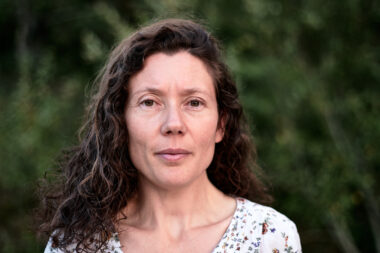New national polling of more than 6,000 Australians has revealed a stark gender divide on one of the election’s most contentious issues – nuclear energy.
DemosAU Head of Research George Hasanakos has described the results as “the sharpest divide in attitudes between men and women that we have seen on any issue.”
Just 26% of women think nuclear would be good for Australia, compared to 51% of men.
The gender divide is pronounced, regardless of the age of voters, with young men and young women just as divided on nuclear energy as those from older generations.
While males are spilt down the middle on nuclear energy, the level of support plummets when men are asked about the realities and consequences associated with nuclear energy.
For example, just one in three men say they would be happy to live near a nuclear plant and a higher percentage of men (42%) say they are concerned about the safety of the technology than those who aren’t.
Women on the other hand, overwhelmingly consider nuclear to be high cost and high risk.
63% of women say they don’t want to live near a nuclear plant and more than half (57%) don’t think transporting radioactive waste is worth the risk.
“With abundant sun and wind, Australia does not need nuclear in our energy mix, nor do most voters want it,” said ACF Chief Executive Kelly O’Shanassy.
“Women are strongly opposed, recognising that going nuclear would delay the transition from coal and gas, increase household power bills, introduce the possibility of catastrophic accidents and create a multi-generational burden with managing high-level radioactive waste.
“When men are pressed about these realities and consequences, they too start to see reason that nuclear is not right for Australia.”
1 Million Women surveyed an additional 3,351 women and found 93% of its supporters are concerned about nuclear energy. The top-ranked concern is its potential to derail the rollout of renewable energy.
“Nuclear energy is a distraction to meaningful climate solutions and women don’t have the time or patience to entertain the Coalition’s proposal,” said 1 Million Women founder Natalie Isaacs.
“Women are thinking about their children and grandchildren and the safety risk associated with nuclear energy in the unfortunate event of an accident, as well as what happens to the radioactive waste, which stays toxic for many thousands of years,” she said.
Nick Holliday, a farmer in the South Burnett region of Queensland, said he was concerned about how much water was consumed by nuclear energy.
“As a farmer in regional Queensland, it’s become clear to me that more blokes need to be vocal in opposition to nuclear energy.
“There are too many risks and consequences associated with nuclear when we already have safe and clean energy options on the table.
“We don’t need nuclear energy in the mix – it’s hugely expensive and it’s thirsty, using vast amounts of water – one of Australia’s most precious natural resources.
“Peter Dutton’s proposal to introduce nuclear energy is about politics and the election – it’s not a genuine attempt to decarbonise our economy.
“As someone who relies on our land and rainfall to feed my family, I witness the impacts of climate breakdown every day. We can’t afford any more delays or distraction.
“I say no to nuclear because I want to see a future that better protects and preserves the land that sustains us.”
DemosAU polled 6,709 adults between 2 July and 24 November 2024.
The release of this research coincides with the national inquiry into nuclear energy which is holding hearings this week in Melbourne, Adelaide and regional Victoria and SA.
Read more: The gender divide on nuclear energy (PDF)
Contact details:
Josh Meadows 0439 342 992 [email protected]
Freya Cole 0477 638 774 [email protected]

